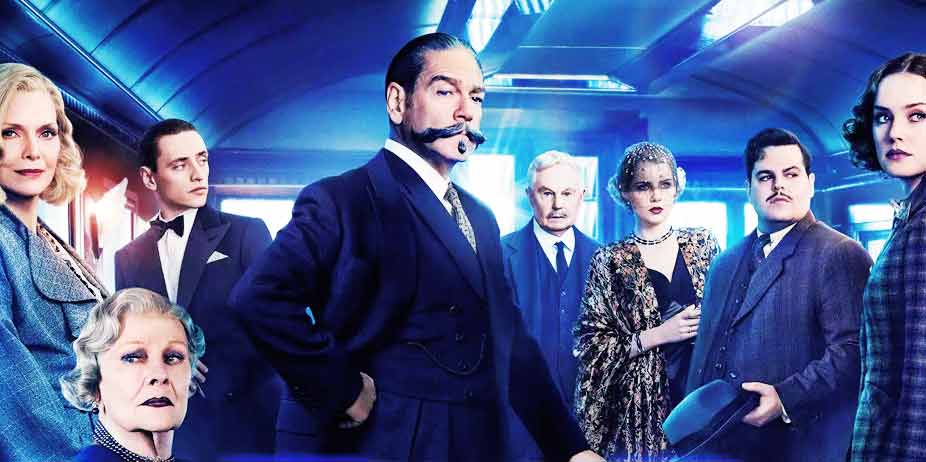 Murder
on the Orient Express (2017)
Murder
on the Orient Express (2017)
In the original novel, Murder on the Orient Express, the fussy and unforgettable Poirot debates theology and wrestles between his Catholic faith and the idea of justifiable murder. In this modern and glitzy film, the subject never comes up.
The world-famous detective Hercule Poirot (Kenneth Branagh) has just finished a case, and urgent tidings draw him back to London, so he boards the Orient Express amid a slew of unforgettable characters. The wealthy widow Caroline Hubbard (Michelle Pfeiffer) tries to befriend him to no avail, as do several other passengers. But when the slimy Edward Ratchett (Johnny Depp) asks him for assistance, since he has received several threats on his world tour, Poirot stares at him across a tiny, perfect chocolate cake and says no.
By dawn, the train has derailed in the snow-capped mountains and Ratchett is dead. No one seems all that sorry about it, leaving Poirot with an unusual crime scene (the evidence seems a little too evident) and a dozen suspects that range from Ratchett's own butler to a princess. As he follows the clues, Poirot unravels a tragic past whose threads connect into the present and the horrible truth about the man found stabbed in his compartment. With an impressive supporting cast (which includes Derek Jacobi, Daisy Ridley, Judi Dench, William Dafoe, Penelope Cruz, and many others), and an absolutely gorgeous presentation (the train is oppressive, the views dramatic, the tweed itchy, and the details as meticulous as the Poirot might demand), it's a shame it's all a bit hollow.
Since Branagh (as the director and star) focuses almost entirely on Poirot, in an attempt to give him a tragic but unexplained past (a lost love), and throw in shades of Sherlock Holmes to his deductions, he neglects the entire supporting cast. None of the side characters ever become more than cardboard cutouts; we know them little, and care even less. That one of them might hang for the crime fails to elicit any kind of sympathy, since they are strangers when they get on, and when they get off. Gone is the crux of the story, in which Christie asks the reader whether murder is ever justified, or if an unsympathetic victim is still a victim who deserves justice. Gone is the debate on God and religious beliefs with the missionary on the train. Even though the film is short, it felt long to me, because it had no real heart and no one to focus on except Poirot, who is far more detached and less charming than Suchet's version. Tragically, to me, it felt like the bones of a better story.
Sexual Content:
Poirot indicates a woman is a prostitute and she laughs
and agrees; a woman makes several suggestive remarks
about having men in her stateroom.
Language:
Several uses of GD / abuses of Jesus' name, common
profanities.
Violence:
A man fires a gun at another man and misses; a character
is shown stabbed in the back (but alive); a flashback
shows the victim being stabbed off-camera; we see an
overhead shot of a bloody body.
